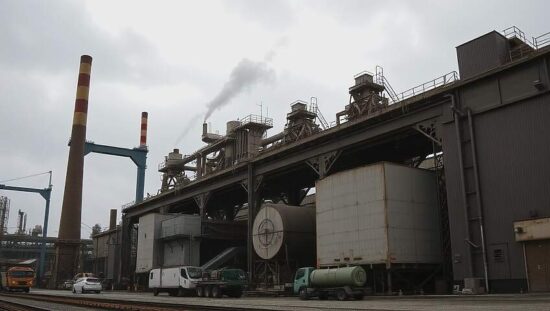German states are pushing for aggressive tariffs on steel imports ahead of a critical meeting at the Chancellery, signaling a growing rift over trade policy and industrial protection within Germany. In a joint statement released Wednesday, the governments of Niedersachsen, NRW, Sachsen, Saarland and Bremen demanded a system of EU tariffs designed to level the playing field and safeguard domestic steel industries, while simultaneously raising concerns about the long-term viability of Germany’s industrial base.
The states advocate for a “transitional solution” mirroring a quota system aligned with World Trade Organization (WTO) standards, but accompanied by a significant punitive tariff for imports exceeding those quotas. Specifically, they are calling for tariffs of “at least 50 percent” a direct echo of US policy, aimed at products spanning the entire steel value chain, from raw materials to processed goods.
This position underscores a growing anxiety among regional leaders regarding the competitive pressures exerted by foreign steel producers, particularly in the face of ongoing geopolitical instability. The call for a complete ban on steel imports from Russia further highlights this concern and aligns with the broader efforts to reduce dependence on Russian markets.
However, the hardline stance isn’t without potential complications. The states acknowledge the need to protect the international competitiveness of downstream processing industries within the EU, recognizing that overly burdensome tariffs could inadvertently harm their ability to operate effectively. They are urging swift adoption of the EU Commission’s proposed new trade instrument for the steel sector to provide much-needed planning certainty for all stakeholders.
Beyond trade policy, the statement emphasizes the urgent need for a fully operational Carbon Border Adjustment Mechanism (CBAM) by January 2026, warning that failure to do so would necessitate maintaining free emissions certificates. Furthermore, the governments stressed the crucial role of reliable and competitively priced hydrogen supplies and secure power purchase agreements to facilitate the decarbonization of steel production, calling for the timely completion of the hydrogen core network.
NRW Minister President Hendrik Wüst powerfully articulated a key worry: “The Emissions Trading Scheme must not become a program of deindustrialization”. He emphasized that environmental protection can only succeed if companies are able to invest in modern, low-carbon technologies. This sentiment underscores the delicate balance Germany faces in navigating climate goals without crippling vital industries and fueling economic anxieties within its regions. The coming weeks will be critical in determining whether the federal government can reconcile these competing pressures and forge a policy that protects both German industry and its climate commitments.





